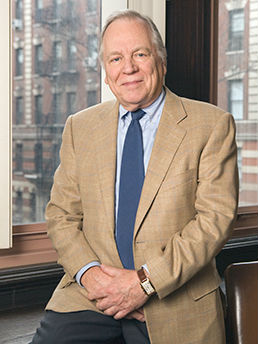3 Questions with Warner Burke
What first interested you in studying learning agility and its correlation to leadership effectiveness?
What first interested me in studying learning agility was reading an article in which the authors stated that there was a positive correlation between their measure of learning agility and leadership effectiveness. This made intuitive sense to me but I did not think that their measure was adequate. That was over 4 years ago. Since that time, with the help of my doctoral students, we have been on the quest of creating that adequate measure. It has been a long and complicated journey, but we are almost there. We will have it before Thanksgiving, thus having a product that we will be thankful for. Read more...
What first interested me in studying learning agility was reading an article in which the authors stated that there was a positive correlation between their measure of learning agility and leadership effectiveness. This made intuitive sense to me but I did not think that their measure was adequate. That was over 4 years ago. Since that time, with the help of my doctoral students, we have been on the quest of creating that adequate measure. It has been a long and complicated journey, but we are almost there. We will have it before Thanksgiving, thus having a product that we will be thankful for.
An alumnus holding 3 TC degrees and who was also a former student of yours recently attended our Provost Series to hear your presentation on Learning Agility. He mentioned the strong and positive impact you had on his life at TC and in his career as a Harvard professor, and has since reconnected with the College in a significant way after almost 25 years. How do stories like these make you feel as a long-time member of the TC faculty?
What keeps many of us as faculty members going? What is the primary reward? It is stories like this one. It is the highest form of job satisfaction and reward. I came to TC in 1979. That’s a long time. So, maybe I should consider retirement. But there may be another student this next year who could find something that I say or do to be meaningful and worthwhile. With that possibility I think I will continue. The reward is like no other.
Why should our alumni and friends support the TC Annual Fund?To ensure the long-term survival and viability of Teachers College we need a strong Annual Fund. Why TC? Because as a graduate school of education we are unique in the world. No other school has the combination of education, health, and psychology. Each of these disciplines contribute to the other two in terms of both what we teach, e.g., how to learn and how we teach—that is, emphasizing experiential methods and bearing in mind that our students are adults.
Published Tuesday, Jul. 23, 2013
